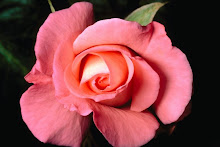"Twas midnight-through the lattice wreath'd with woodbine,many a perfume breath'd from plants that wake while other sleep,
From timid jasmine buds, that keep their odour to themselves all day, but when the sunshine dies away, Let the delicious secret out to every breeze that roams about. Thomas Moore ( 1779-1852)
Jasmine is known in India as the "Queen of the Night" because of it's intoxicating perfume that is released at night.
In China ,Jasmine is used a symbol of feminine sweetness and beauty. Jasmine also symbolize deep affection, happiness and elegance. This is why it is used in wedding toss.
Jasmine has been used for healing the female reproductive system. In Ayurvedic medicine jasmine is used to calm the nerves, sooth emotional problems, help with PMS and tension headaches. Because Jasmine has antispasmodic properties it can help relax the uterine cramps and pain during childbirth.
In Chinese medicine Jasmine flowers are known to "cool" the blood and have a strong antibacterial, antiviral, and anti-tumor properties. Because they cool the blood they help with reducing a fever or cooling an overheated person (from the sun) .
Jasmine has astringent properties which aids in treating inflamed eyes and skin, and as a gargle to relieve sore throats and mouth ulcers.
Jasmine is used in aromatherapy to calm the emotions, and as an aphrodisiac. It is a valuable remedy in cases of depression because is produces a feeling of confidence , optimism and euphoria. It revitalizes and restores the balance of energy.
Jasmine is used in teas, herbal bathes, skin creams, soaps and potpourri. It is also used as a decorative touch to special dishes.



No comments:
Post a Comment